Disclosure: This article contains affiliate links. We may earn a commission from purchases at no extra cost to you, which helps our travel content.
The moment my boots hit Djerba's sun-baked soil, I knew this Tunisian island wasn't just another business stopover. I'd come to consult on sustainable grazing practices for a local agricultural development project, but what I discovered was an architectural wonderland where centuries-old building techniques meet modern luxury. After five visits spanning different seasons, I've compiled my definitive guide to the island's most remarkable accommodations – places where the structural integrity impresses as much as the cultural experience.
Traditional Houara Cave Dwellings: Underground Luxury
My first Djerban accommodation experience came through a local contact who insisted I experience the island's traditional underground dwellings. These aren't primitive caves but sophisticated structures where generations of engineering knowledge have created naturally climate-controlled spaces that maintain a perfect 72°F year-round without mechanical assistance.
I stayed at Dar Dhiafa, a meticulously restored complex of connected cave dwellings in Erriadh village. The 14th-century structure features thick limestone walls, domed ceilings, and a central courtyard that creates natural airflow patterns I've only otherwise observed in certain Rocky Mountain canyon formations. The owners have masterfully integrated modern plumbing and electricity without compromising the structural integrity or historical significance.
What struck me most was how the thermal mass principles mirror sustainable ranch home designs I've implemented back in Virginia – proof that environmental adaptation transcends continents and centuries. Each morning, I'd wake to sunlight filtering through small, strategic apertures in the ceiling, illuminating the handwoven Berber carpets that insulate the cool stone floors.
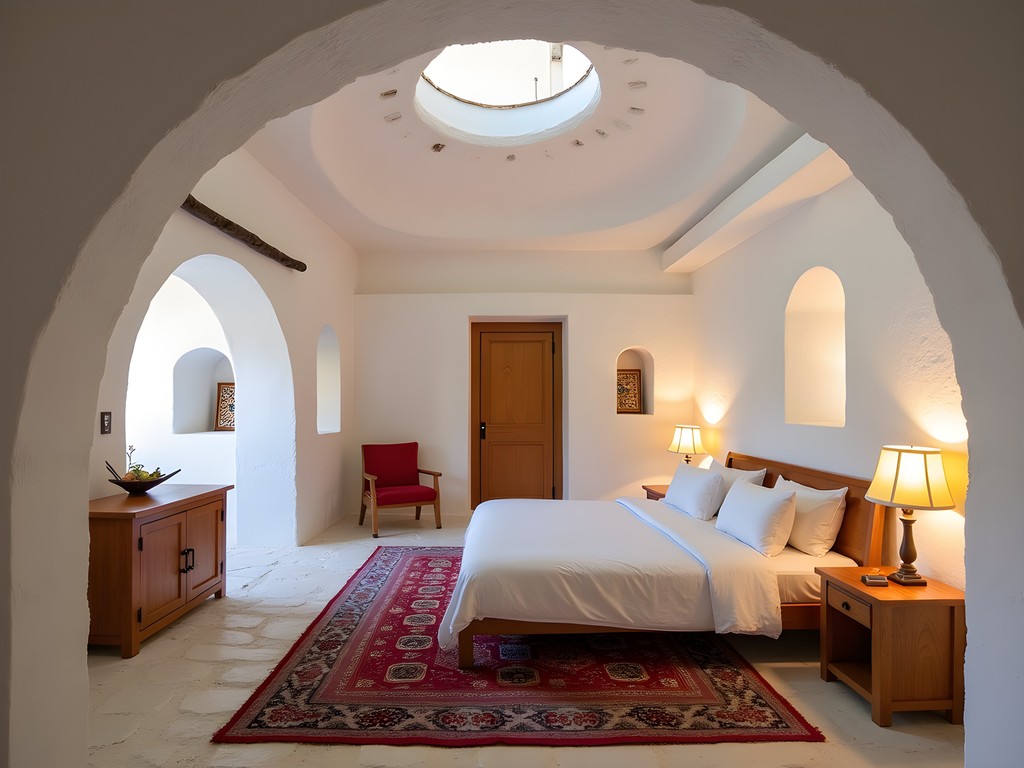
💡 Pro Tips
- Request room #7 for the most authentic cave experience with private courtyard access
- Pack a light sweater even in summer – the natural cooling can feel chilly after sunset
- Ask the staff about the water collection system – it's an engineering marvel
Menzel-Style Boutique Hotels: Fortified Luxury
Djerba's traditional fortified homes, known as menzels, represent some of the most fascinating defensive architecture I've encountered outside of medieval European castles. These square structures with interior courtyards were originally designed to protect families and livestock from raids, but today they've been transformed into boutique accommodations that balance historical authenticity with modern comfort.
During my spring visit, I stayed at Dar Bibine, where the owners have preserved the original 18th-century defensive walls while transforming the interior courtyard into a lush garden oasis. Each room opens directly onto this central space, creating a community atmosphere reminiscent of the ranch bunkhouses I grew up with, though considerably more luxurious.
The most impressive feature is the rooftop terrace, where I spent evenings tracking the stars with my portable telescope. The absence of light pollution in this part of Djerba creates ideal stargazing conditions, and the elevation offers uninterrupted views across palm groves to the Mediterranean beyond. For wildlife enthusiasts, this vantage point provides excellent opportunities to spot migratory birds during spring and fall seasons.
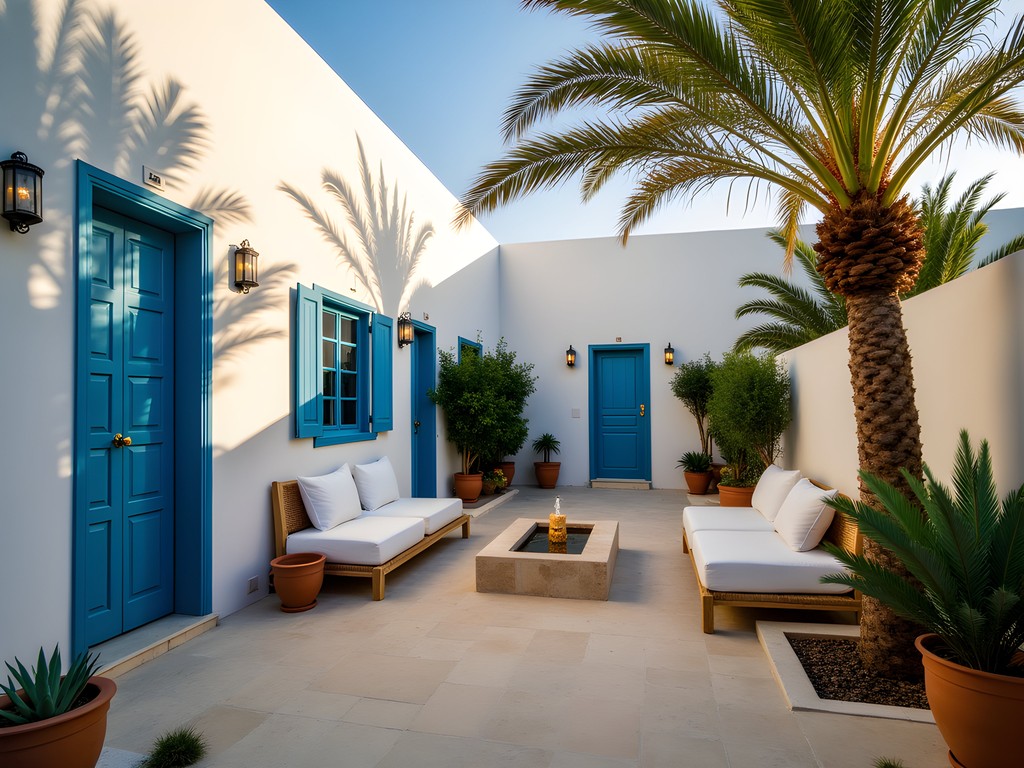
💡 Pro Tips
- Book the corner suite for dual exposure and cross-ventilation
- Bring a star chart for incredible rooftop stargazing
- Request dinner on your private rooftop terrace at least once during your stay
Converted Fondouks: Merchant History Reimagined
Perhaps the most architecturally fascinating accommodations on Djerba are the converted fondouks – historical merchant inns that once housed traders, their goods, and their animals. These two-story structures built around central courtyards represent a commercial architectural style that spread throughout North Africa and parts of the Middle East along trade routes.
I spent three nights at Fondouk Ellamma, a meticulously restored 16th-century structure where each guest room was once a merchant's chamber. The ground floor stables have been converted into a hammam spa and restaurant, while maintaining structural elements like the original stone feeding troughs and hitching posts – now repurposed as design features.
What impressed me most was how the renovation preserved the building's soul while introducing modern amenities. The original wooden support beams still bear load after five centuries, a testament to the engineering knowledge of medieval Berber builders. My room featured 24-inch thick walls that created natural soundproofing and temperature regulation that outperformed any modern hotel I've experienced.
During my stay, I found myself tracking the sun's movement through the central courtyard, noting how the original architects had designed the space to maximize shade during summer months while capturing warming rays during winter – passive solar design principles that predate modern sustainable architecture by centuries.
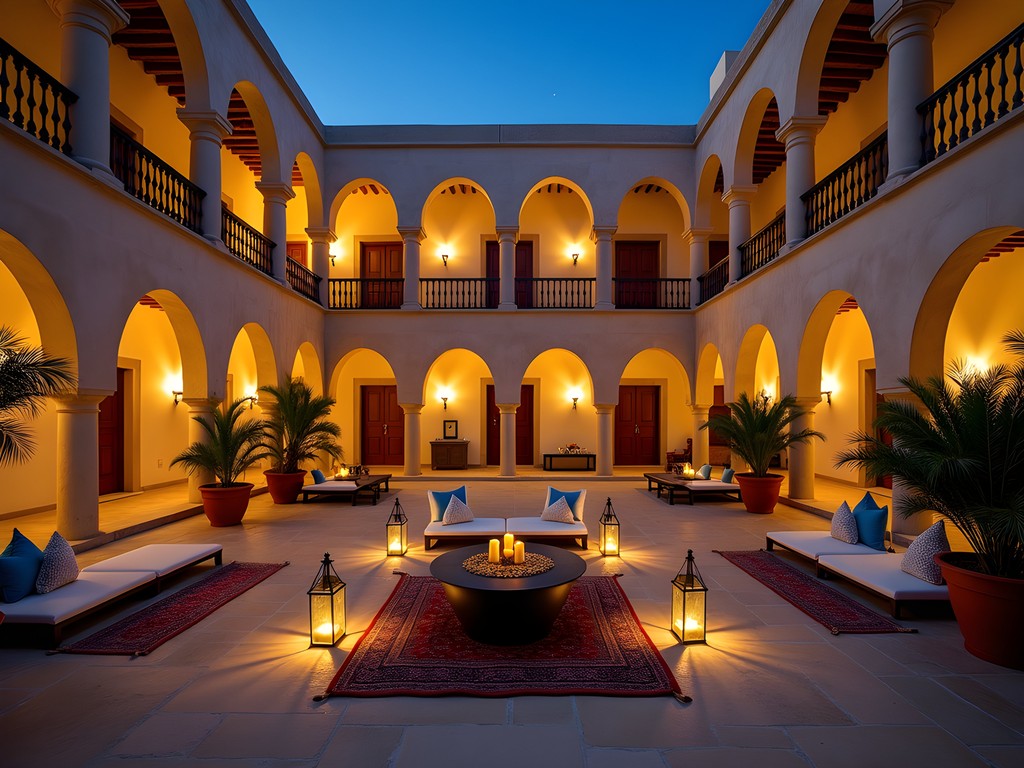
💡 Pro Tips
- Request an upper-floor room for better airflow and views of the central courtyard
- The hammam experience is exceptional – book in advance and try the traditional olive oil scrub
- Don't miss the rooftop breakfast with views across Houmt Souk's skyline
Eco-Luxury Beachfront Resorts: Sustainable Opulence
While historical accommodations offer cultural immersion, Djerba's eco-luxury beachfront resorts provide a different kind of architectural experience – one where modern sustainable design meets Mediterranean opulence. For those seeking high-end amenities without compromising environmental values, these properties represent the island's most impressive contemporary building achievements.
During my most recent visit, I splurged on three nights at Radisson Blu Palace Resort & Thalasso, where the design team has created a remarkable water conservation system that would impress any drought-conscious rancher. The property recycles 85% of its water through a sophisticated filtration system, uses solar heating for pools and hot water, and maintains extensive gardens with native drought-resistant species.
The architecture itself draws heavily from traditional Djerban forms – domed ceilings, thick walls, and strategic shading – while incorporating modern materials and technology. My suite featured floor-to-ceiling windows with specialized glazing that prevented heat gain while maximizing natural light, eliminating the need for daytime artificial lighting.
For beach days, I relied heavily on my reef-safe sunscreen to protect both my skin and the delicate Mediterranean marine ecosystem. The resort's private beach stretches for nearly a kilometer, with carefully designed access points that prevent erosion and protect the dune system that serves as a natural barrier against storm surges.
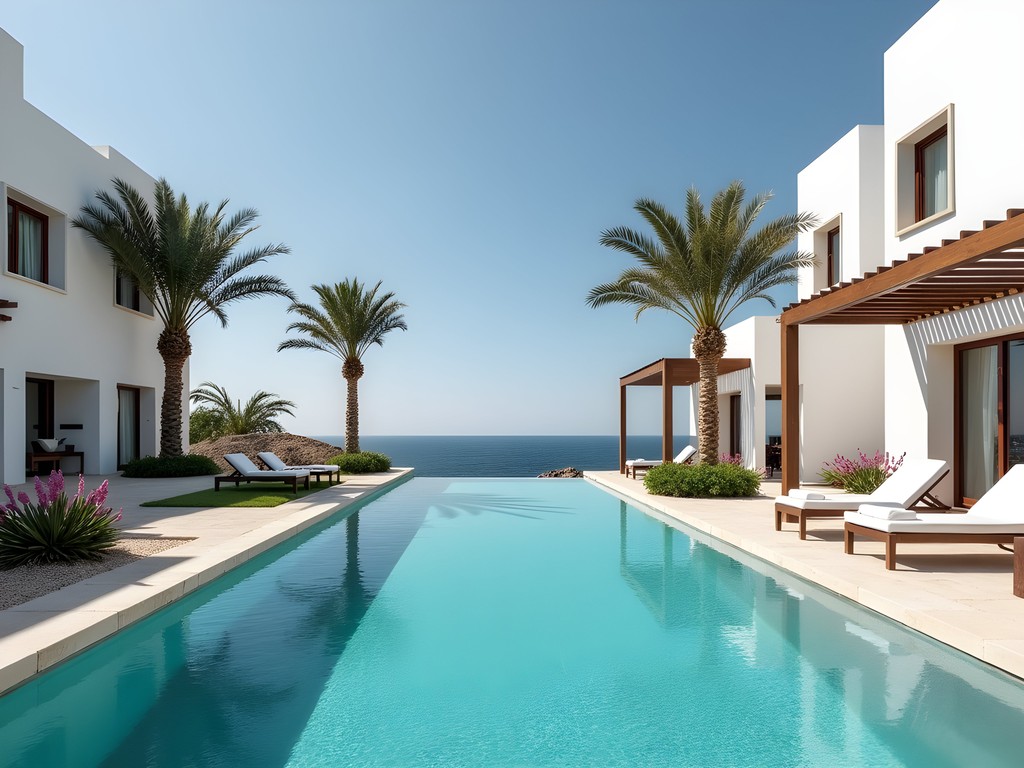
💡 Pro Tips
- Book a south-facing room for the best balance of views and natural cooling
- Pack a quick-dry beach towel for excursions to more remote beaches
- The thalassotherapy treatments use locally harvested sea minerals – worth the splurge
Converted Olive Oil Mills: Industrial Heritage Reimagined
Perhaps my most unexpected accommodation discovery came through a local agricultural contact who recommended I experience one of Djerba's converted olive oil mills. These industrial structures, some dating back 300 years, have been transformed into boutique hotels that showcase the island's agricultural heritage while providing truly unique accommodations.
I spent two nights at Dar Zahra, housed in a restored 18th-century olive mill where the massive stone grinding wheels and wooden presses have been preserved as architectural features. My suite was built within what was once the olive storage room, with 20-foot ceilings and the original stone storage bins now serving as room dividers and display niches.
What fascinated me most was how the conversion honored the building's industrial past while creating surprisingly luxurious spaces. The main pressing room now serves as a restaurant where guests dine alongside the massive wooden screw presses that once extracted precious oil. The current owners still produce small-batch olive oil using traditional methods during harvest season, creating an agritourism experience that reminds me of the working ranch stays I've experienced in Montana.
For olive oil enthusiasts, I recommend bringing a olive oil journal to document the various local varieties you'll encounter. The hotel offers tastings featuring oils produced from different microclimates around the island, highlighting how terroir affects flavor profiles – something I found surprisingly similar to wine tasting.
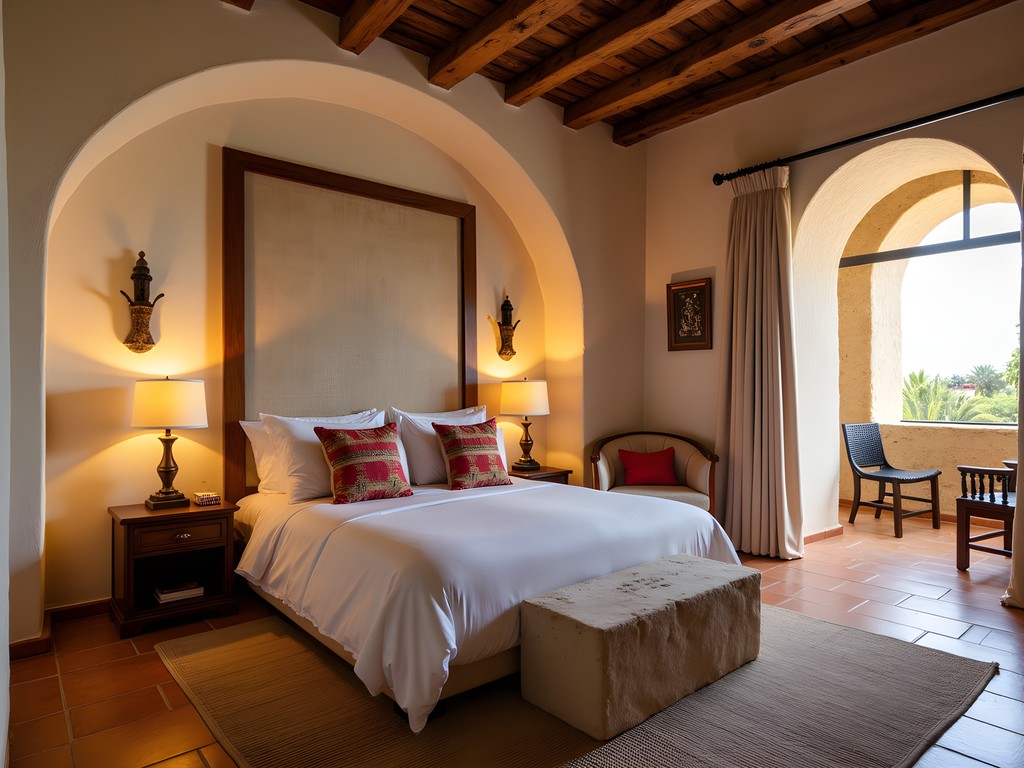
💡 Pro Tips
- Book during November if you want to witness the traditional olive harvest and pressing
- Request room 4 or 5 – they feature the original stone arches and best preserved industrial elements
- Bring a headlamp for exploring the fascinating underground storage caverns
Luxury Desert Camp Experiences: Nomadic Heritage
While Djerba is an island, its southern reaches feature remarkable desert landscapes where several operators have established luxury camps that blend nomadic traditions with high-end amenities. These accommodations offer a completely different experience from the coastal resorts, focusing on isolation, stargazing, and connection to the landscape.
I spent an unforgettable night at Desert Rose Camp during my spring visit, staying in a traditional tent that had been upgraded with a proper bed, electricity, and even air conditioning powered by solar panels. What impressed me most was how the camp was designed to leave virtually no permanent footprint on the fragile desert ecosystem – a principle we practice religiously in sensitive grazing areas back home.
The camp's water conservation systems would impress any rancher accustomed to drought conditions. Showers use a gravity-fed system that limits flow while maintaining pressure, and all greywater is filtered and used for the small garden of native plants that surrounds the central dining tent.
For desert stargazing, I found my red light headlamp essential for navigating between tents without disrupting night vision. The absence of light pollution creates stargazing conditions that rival the best I've experienced in remote parts of the Canadian Rockies.
The camp arranged a sunset camel trek that followed ancient caravan routes, culminating in a traditional dinner served on dunes overlooking the salt flats. Our guide explained how these routes once connected Djerba to trans-Saharan trade networks that stretched across the continent – a fascinating glimpse into the island's historical significance beyond its beaches.
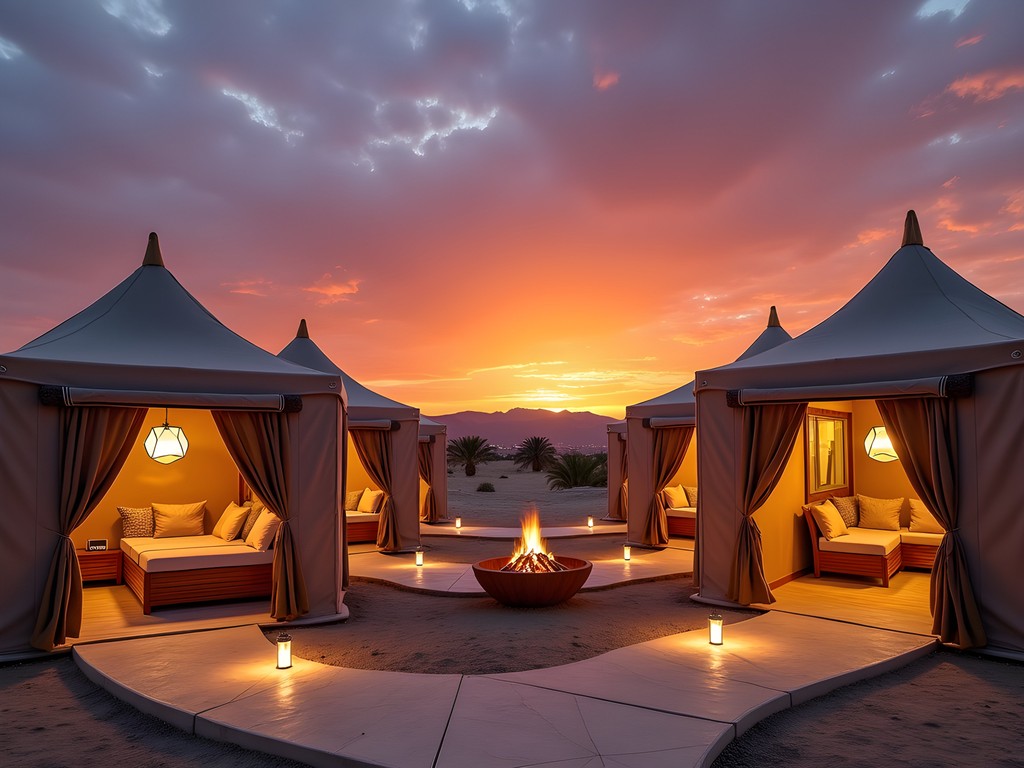
💡 Pro Tips
- Book during new moon for the most spectacular stargazing conditions
- Pack a insulated water bottle – staying hydrated in the desert heat is crucial
- Request the eastern-facing tent for spectacular sunrise views over the dunes
Historic Lighthouse Keeper's Quarters: Coastal Isolation
My final recommendation comes from pure serendipity – during a coastal survey of erosion patterns affecting agricultural land, I discovered that Djerba's historic Taguermess Lighthouse offers accommodations in the former keeper's quarters. This isn't widely advertised and requires booking directly through the Tunisian maritime authority, but the experience is unparalleled for those seeking coastal isolation and maritime history.
The quarters have been minimally modernized – there's electricity and running water, but no air conditioning or television – creating an experience that feels like stepping back in time. What you sacrifice in modern convenience, you gain in authenticity and location. The stone structure, built by French engineers in 1885, features walls three feet thick that keep the interior remarkably cool even during summer heat.
My three-night stay coincided with a full moon, and watching it rise over the Mediterranean from the lighthouse gallery was a photographer's dream. The current keeper, who maintains the automated light system, offers informal tours of the operational portions of the lighthouse, providing fascinating insights into maritime navigation history and modern technology.
For this stay, I was grateful for my portable power station to keep camera batteries and devices charged, as the electrical outlets are limited and somewhat unreliable. Birdwatchers should bring their best optics – the lighthouse is positioned along a major migration route, and the elevated observation platform offers unparalleled viewing opportunities during spring and fall passages.
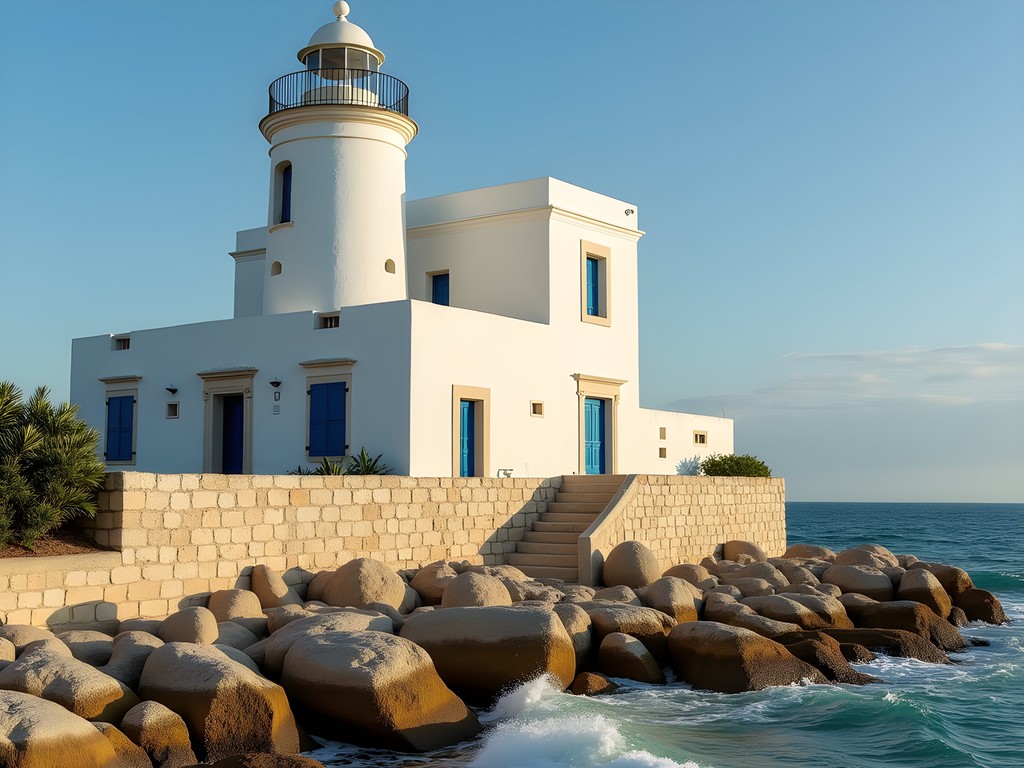
💡 Pro Tips
- Book at least 3 months in advance – there's only one guest accommodation and it fills quickly
- Bring all food supplies with you – there are no nearby restaurants or shops
- Pack a waterproof dry bag for protecting electronics during coastal exploration
Final Thoughts
Djerba's accommodation landscape represents a masterclass in architectural adaptation and reinvention. From cave dwellings that employ passive cooling techniques perfected over millennia to modern eco-resorts implementing cutting-edge sustainability technology, the island offers a remarkable study in how buildings can work harmoniously with their environment.
What struck me throughout my stays was how each property type tells a different chapter of Djerba's story – the defensive menzels speaking to its history of resilience, the fondouks highlighting its commercial importance, and the converted industrial buildings showcasing its agricultural heritage.
As someone who spends my professional life thinking about how human structures interact with natural landscapes, Djerba offered unexpected lessons in sustainability and adaptation that I've carried back to my ranching operations in Virginia. Whether you're drawn to historical immersion or luxury amenities, the island delivers accommodations that go far beyond mere places to sleep – they're portals to understanding this remarkable Mediterranean crossroads.
When you visit, I encourage you to ask questions about the buildings themselves – how they were constructed, how they've been adapted, and what they can teach us about living thoughtfully within our environments. The answers might just change how you think about the spaces you inhabit back home.
✨ Key Takeaways
- Book accommodations that align with your interests – architectural history, sustainability, or cultural immersion
- Spring offers the ideal balance of comfortable temperatures and lower tourist numbers
- The most unique properties require advance booking, especially the lighthouse keeper's quarters
- Pack for both beach and desert environments if you plan to explore the full range of the island
📋 Practical Information
Best Time to Visit
March through May
Budget Estimate
$200-600 per night depending on property
Recommended Duration
7-10 days
Difficulty Level
Intermediate

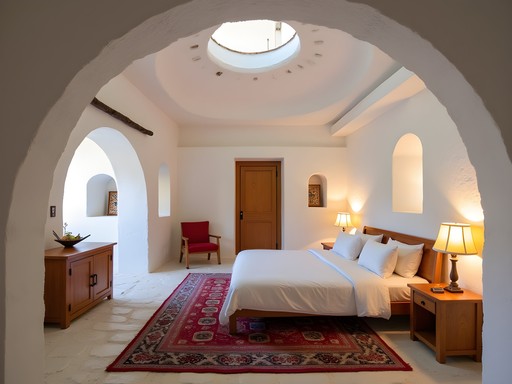
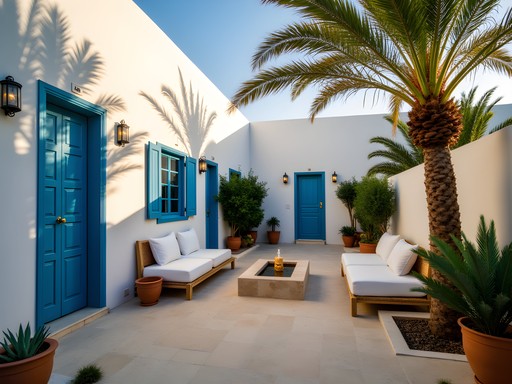
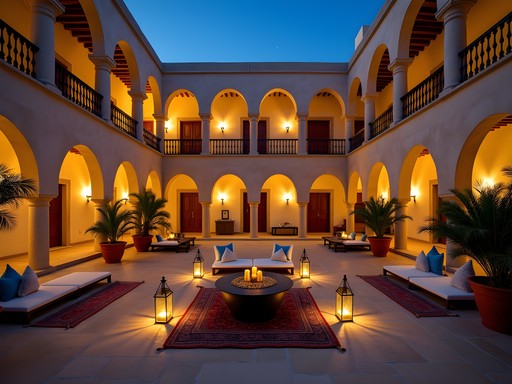
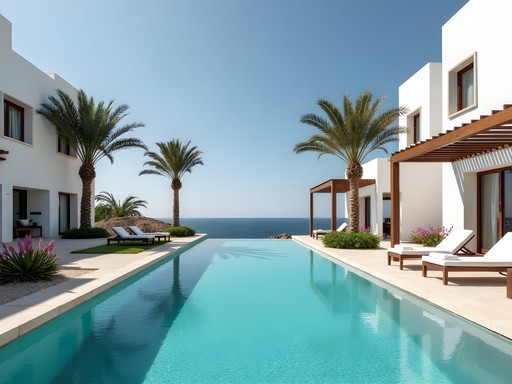
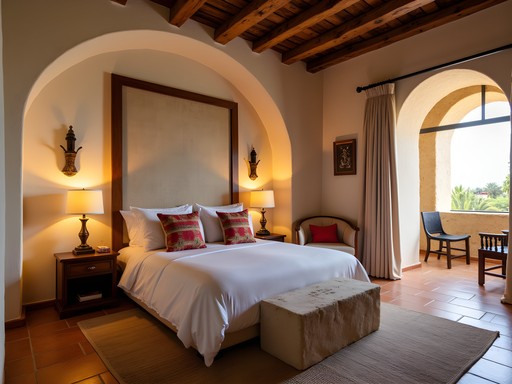
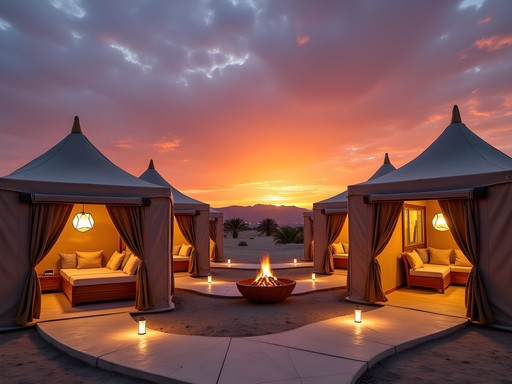



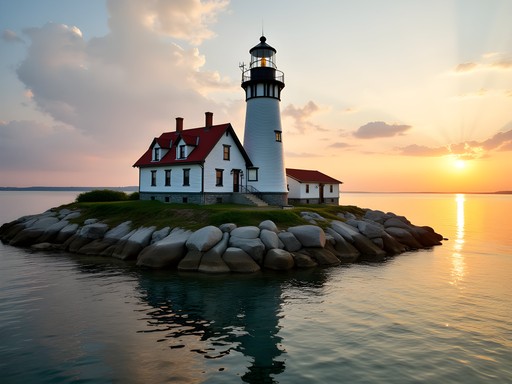

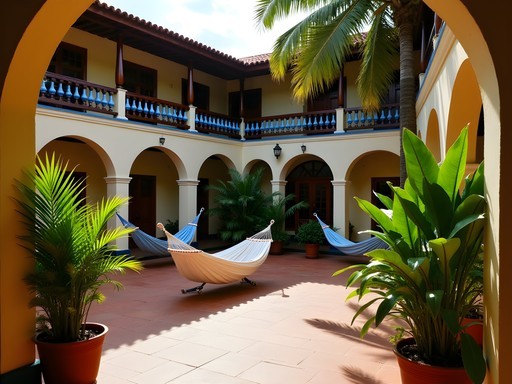
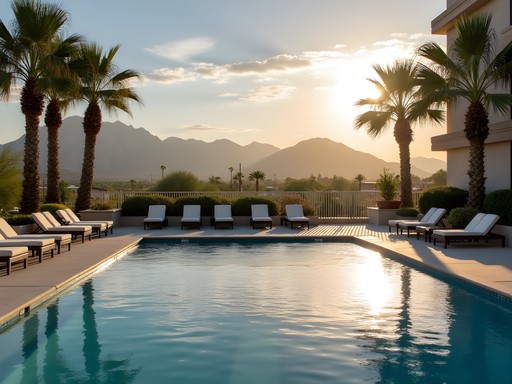
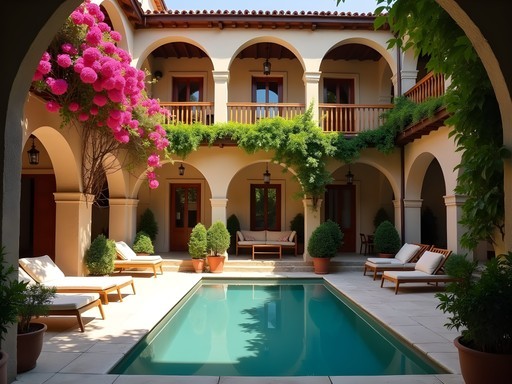
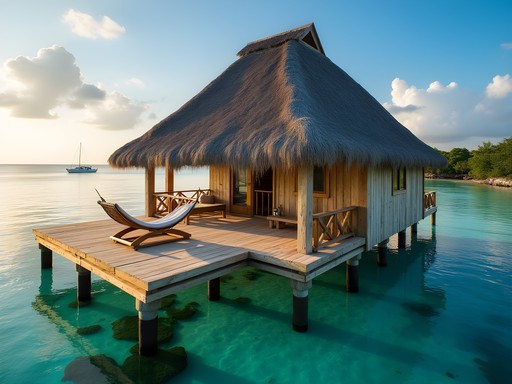
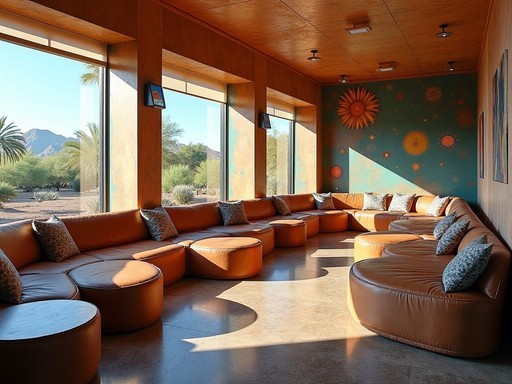
Comments
backpackexplorer
Love the photos of the fondouks!
wildrider
what's the best time of year to visit? worried about it being too hot
Bryce Diaz
Spring (March-May) or fall (September-November) are ideal. I made the mistake of visiting southern Tunisia in July once and it was brutal. But here's the thing about those cave dwellings Justin mentioned - they stay naturally cool even in summer. The traditional architecture is genius. I've traveled through Morocco, Algeria, and Tunisia, and Djerba has this unique blend where it feels less touristy than Marrakech but more accessible than some Algerian destinations.
wildrider
perfect, looking at october then. thanks!
backpackexplorer
Adding this to my Tunisia itinerary!
sunsetphotographer
those cave dwellings look amazing!! how do you book them? are they on the usual booking sites or do you need to contact directly?
Bryce Diaz
Most of the converted cave stays I found required direct booking through their websites or WhatsApp. The owners are incredibly responsive though. I stayed in a similar underground hotel in Matmata on the mainland and it was one of the most memorable nights of my life - the natural temperature regulation is incredible.
sunsetphotographer
awesome thanks! gonna reach out to a few places
winterseeker
Thanks for this detailed breakdown! I'm planning a solo trip to Tunisia this winter and Djerba wasn't on my radar until now. How's the internet connection in these places? I need to work remotely for a few days during my trip.
starace
I stayed at one of the beachfront resorts last year and the WiFi was surprisingly good. Can't speak for the cave dwellings though!
bluepro
Those photos of the Houara Cave Dwellings are insane! Never seen anything like it!
Marco Flores
Justin, you've captured the essence of Djerba's accommodations perfectly! I spent three weeks island-hopping through the Mediterranean last summer, and my stay in a traditional Menzel-style hotel was the unexpected highlight. The contrast between the fortress-like exterior and the garden oasis inside blew my mind. My room opened directly onto a courtyard with a small fountain, and I'd wake up to birds singing every morning. The family who owned it taught me how to make proper Tunisian mint tea (hint: the sugar amount is NOT optional 😂). For anyone planning to visit, I highly recommend renting a scooter to explore the island - the narrow streets in some villages aren't great for cars, and you'll discover little pottery workshops and hidden beaches that aren't in any guidebook.
exploreclimber
Great post! How difficult is it to get to Djerba? Are there direct flights from major European cities or do you need to connect through Tunis?
bluepro
Not OP but there are direct flights from Paris, London and Frankfurt during high season. Off-season you'll probably connect through Tunis. The airport is super small and chill though!
oceanwalker3124
Are these places suitable for families with young kids? Those cave dwellings look amazing but wondering if they're kid-friendly?
Marco Flores
I took my nephew (7) last year and he LOVED the cave dwelling! Felt like an adventure to him. Just check which ones have family rooms - some are more couple-oriented. The eco-resorts typically have great kid activities too.
Casey Andersson
Justin, this is exactly the kind of accommodation round-up I live for! I stayed in one of those eco-luxury beachfront resorts last spring while on assignment, and the sustainability elements were genuinely impressive, not just greenwashing. My suite had these gorgeous handwoven textiles from local artisans and the most breathtaking ocean view from a private terrace. The staff arranged a private dinner for me right on the beach with lanterns and the freshest seafood I've ever tasted. If anyone's planning a trip, I'd recommend bringing a light sweater for evening sea breezes - I used my travel wrap constantly during my stay. Also worth noting that many of these properties book up 6+ months in advance during high season!
Venture X
Premium card with 2X miles, $300 travel credit, Priority Pass